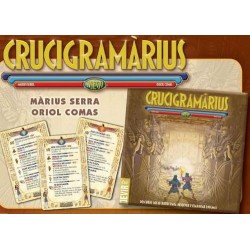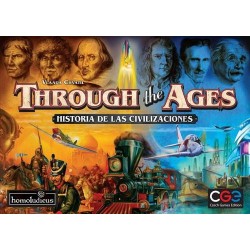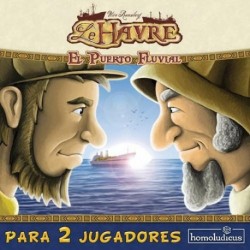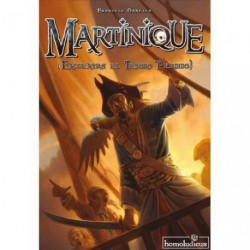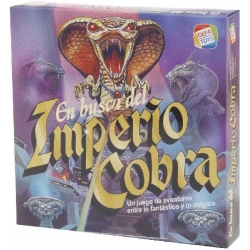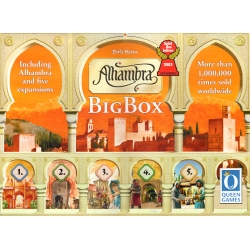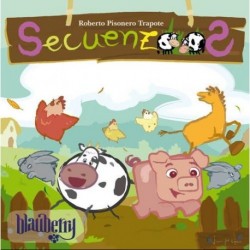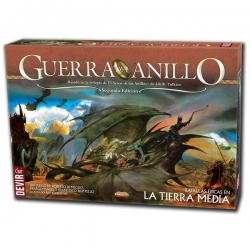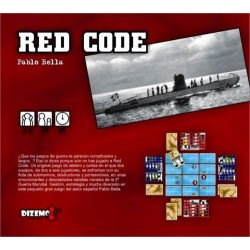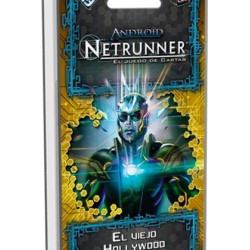No products
Product successfully added to your shopping cart
There are 0 items in your cart. There is 1 item in your cart.
Board
- Board
- Miniatures
- Miniature Accesories
- Aristeia!
- Armada
- Batman Miniatures Game
- Battlefield In A Box
- Song of Ice and Fire
- Conquest - The Last Argument Of Kings
- DC Universe Miniature Game
- Deadzone
- Dofus Krosmaster
- Dystopian Wars
- Dungeons & Dragons WizKids
- Dungeons & Lasers
- Scenography
- Fallout: Wasteland Warfare
- Firefight
- Flames Of War
- Freebooter's Fate
- Harry Potter Miniatures Adventure Games
- Infinity
- Kensei
- Kings of War
- Mars Attacks
- Marvel Crisis Protocol
- Miniatures 30-35 MM
- Miniatures 54-70 MM
- Discworld
- Pathfinder Battles
- Brushes
- Acrylic paint
- Punkapocalyptic
- Relic Knights
- Runewars
- Sails of Glory
- Skytear
- Starfinder Miniatures
- Star Trek Deep Cuts
- Armada
- Star Wars: Imperial Assault
- Star Wars Legion
- Star Wars: X-Wing
- The Drowned Earth
- The Elder Scrolls
- The Path of the Adventurers
- The Walking Dead: All Out War
- Warlord Games
- Warlords of Erehwon
- Warmachine
- Warpath
- Wild West Exodus
- Wings of Glory
- Wolsung
- World Of Tanks
- World War III
- Wyrd Malifaux
- Cards
- 2GM Tactics
- Android NetRunner
- Bang!
- Black Stories
- Cardfight!! Vanguard
- Challenges of Nature
- Digimon TCG
- Dragon Ball TCG
- The Lord of the Rings Lcg
- Final Fantasy TCG
- Flesh & Blood TCG
- Force of Will
- Genesis TCG: Battle of Champions
- Myths War
- Hero Realms
- Game of Thrones LCG
- The Legend of the Five Rings LCG
- Marvel Champions Lcg
- Magic the Gathering
- Munchkin
- My Hero Academia: The Card Game
- Nostalgix TCG
- Pokémon TCG
- Star Wars LCG
- Universal Fighting System
- Yu-Gi-Oh! TCG
- Vampire: The Eternal Struggle TCG
- Weiß Schwarz
- Wizkids
- RPG
- Deluxification
- Educational games
- Import
- Ability games
- Accessories
- Insertos
- Modeling kits
- Figures & Statuettes
- Lego
- Playmobil
- Puzzles
- SUPER DEALS!
New products
-

Here To Sleigh
12,74 € -

-

Lego Star Wars Boba Fett's Mecha
19,99 € -

-

-

-

-

Green Base
8,99 € -

-

-

War Machine Robotic Armor
17,99 € -

The Planet King
MQOE00B31
8437024216315
Ediciones MasQueOca
By buying this product you can collect up to 6 loyalty points. Your cart will total 6 points that can be converted into a voucher of 0,60 €.
More info
The Planet King
Solitaire or Cooperative game for 2 players
Philip IV assumed the throne on March 31, 1621 until his death on September 17, 1665. His reign of 44 years and 170 days was the longest of the House of Austria in Spain. This long reign was marked by an extensive and agonizing decline of the monarchy, fundamentally motivated by a period of continuous external conflicts that consumed the entire Royal Treasury and ruined the country, but also by multiple internal rebellions, especially after 1640. In the political and administrative order, the most notable characteristic of the reign was its systematic recourse to delegating the tasks of government to a favorite. Philip IV resorted, like his father Philip III, to the institution of the valid, that is, a trusted man who assumes the powers of the king in his name and acts as a true head of state, to the point of being able to sign his name. King. The beginning of the reign in foreign policy is marked by the participation of the monarchy in the wars of the 80s and 30s. From these conflicts the House of Habsburg will emerge weakened by signing the Peace of Westphalia, and the world preponderance of France and England will begin to emerge. The war with France continued during the reign of Philip IV for ten more years, until the signing of the Peace of the Pyrenees (1658). The weakness of the monarchy's position at that time will provoke a time of internal rebellions that threatens to fragment the Hispanic kingdoms. In 1640 Catalonia and Portugal rose; In 1641 the Duke of Medina Sidonia revolted in Andalusia; In 1646 it was his turn to Sicily, and the following year, to Naples. If we take into account that at the same time the war with France was taking place, it is easy to understand how critical the situation in which Philip IV found himself. Paradoxically, the reign of Philip IV coincides with the period of greatest splendor of Hispanic arts and letters, the so-called Golden Age. Writers of the stature of Lope de Vega, Quevedo, Góngora, or artists such as Velázquez, (Philip's chamber painter IV) Rivera, Zurbarán or Murillo, were the light in a Spain of shadows. Such was the power and extension of his dominions that King Philip IV went down in History as "the Planet King."
The Planet King is a game for 1 or 2 players in which the player represents King Philip IV (and Valido of him in the two-player version). The player must guide the kingdom and its resources and at the same time try to turn the Spanish court into the most enlightened place in the world, thanks to the artistic generation of the Golden Age. In addition to the above, the king is just another human being, trying to satisfy his most intimate desires and perpetuate the Habsburg dynasty with a male heir. The player's side (or players) is called Spain or the Hispanic monarchy (or simply the monarchy). The player must manage the prestige of the kingdom, the development of the arts (illustration) and the happiness of Philip IV. These factors, added to various game events, will serve to measure the success or failure of the player's actions through victory points (VP).
The game is guided by a deck of event cards, representing the different events of the time, from bad harvests to conflicts with other powers. The greater the number of wars, the more unstable the kingdom is and the more problems it will have to face. For the best government of the kingdom, the player has a series of illustrious people (characters), divided into three categories: nobles (politicians and military men), geniuses (artists) and ladies (queens or ladies of the court). Each shift represents between 3 to 6 years of real time. There are two introductory game scenarios, two campaign scenarios of four turns each and one campaign scenario of eight turns that covers the entire reign of Philip IV. The playing time of each turn is 1-1.5 hours each. However, there is always the risk of having an Automatic Defeat, either because the Prestige of the monarchy or its level of Enlightenment is equal to or less than 1 point or because a Sudden Death of Philip IV occurs if his happiness falls to zero. The economic unit of the game is the ducat, each of these ducats being equivalent to one million ducats at the time, at the current exchange rate about 136 million euros.
Game Sequence
The shift begins with an organization phase, continues with an Events phase, and ends with an administrative phase. The development of turns is guided by a deck of event cards.
Organization Phase
During which the player prepares the decks of cards and performs a series of previous actions.
Events Phase
Once the event deck is prepared, the player begins to draw the event cards one by one. The event takes place as indicated in the text of the letter. Each event is resolved immediately, before drawing another card. Certain events are simple and limited to performing a single action, such as winning a dukedom or removing an illustrious person from court. Other events are more complex and require a test of fortune.
Test of Fortune
The game does not use dice to resolve events or game actions, using the event cards themselves for this purpose. When an event or action requires a fortune check, the player takes the top card from the event deck and resolves the action using the fortune indicator at the bottom left of the card. In this way the event is resolved and the card used is no longer played during the turn, allowing the replayability of the game to be maximum, since not all the playing cards are used from turn to turn.
Player actions
When an Action card is played, it is the moment the player has to influence the development of the game. The player can carry out political actions (such as embassies, appoint political positions, etc.), government actions (military operations, raise thirds...), royal actions (the little things that kings do, like go hunting, have children...) and simple actions, such as building fortresses or raising provincial thirds.
The wars
The reign of Philip IV cannot be understood without representing the multiple wars in which the kingdom was subjected. In the game the monarchy can be in conflict with England, France, the Berbers, the Turks, the Dutch, the Protestants, the Portuguese and some other internal enemies. The more wars, the more instability and the more consumption of money. To fight in these wars the player must raise the troops, whether national or foreign, and choose the best generals among those available, taking into account, of course, the strengths and weaknesses of each. For example, the great Cardinal Infante, although one of the best generals of his time, has a love for women, which can cause him some problems. And of course there are also the enemies, with their powerful armies and their generals, ranging from the reguleros (like the Savoyard Emmamuel) to the great captains of the moment, like Tourenne or Condé.
End of shift phase
A series of administrative actions such as collecting taxes or deploying new units are carried out and prestige, enlightenment, happiness and victory points are counted.
The Illustrious
The illustrious are the characters of the game, represented by a card and sometimes also by a token. The largest group of illustrious people is that of politicians and soldiers, called Nobles. I join them with the Geniuses, the artists who give splendor to the Court; And of course, along with them are the ladies, from the queens to the king's lovers, and why not, also some nuns. All these characters, different from each other and with characteristics that make them unique, must occupy different positions in the Court and beyond, Viceroys, governors, chamber painter, etc. The most important position in the game is that of royal valid. It is this power that provides government and political actions, allowing the king to be assisted in his tasks.
Cooperative Play
In the cooperative game, one of the players assumes the role of King Philip IV and the other of his Valido. The King receives VP for the king's happiness and enlightenment and Valid for the prestige of the monarchy. The Solo War scenario cannot be played in cooperative mode. The king decides the order of resolution of the actions. Each player keeps track of his VP independently.
Components:
• 1 map of 60x44 cm.
• 2 auxiliary boards: the Court and the Council of State.
• 74 NOTABLE cards.
• 68 EVENT cards.
• 12 SECRET MEMORIAL cards.
• 108 game chips.
• 20 coins, called Ducats.
• 15 wooden cubes in red, blue, yellow and green
• 1 regulation
• 1 game book
• 2 help sheets
| Recommended minimum age | +14 |
| Game time | 180 min. approx. |
| Language | Multi language |
| Nº of players | 1-2 |
| Game type | Strategy |
| Difficulty | Medium |
30 other products in the same category:













 Disponible en stock
Disponible en stock  Producto Agotado
Producto Agotado 



